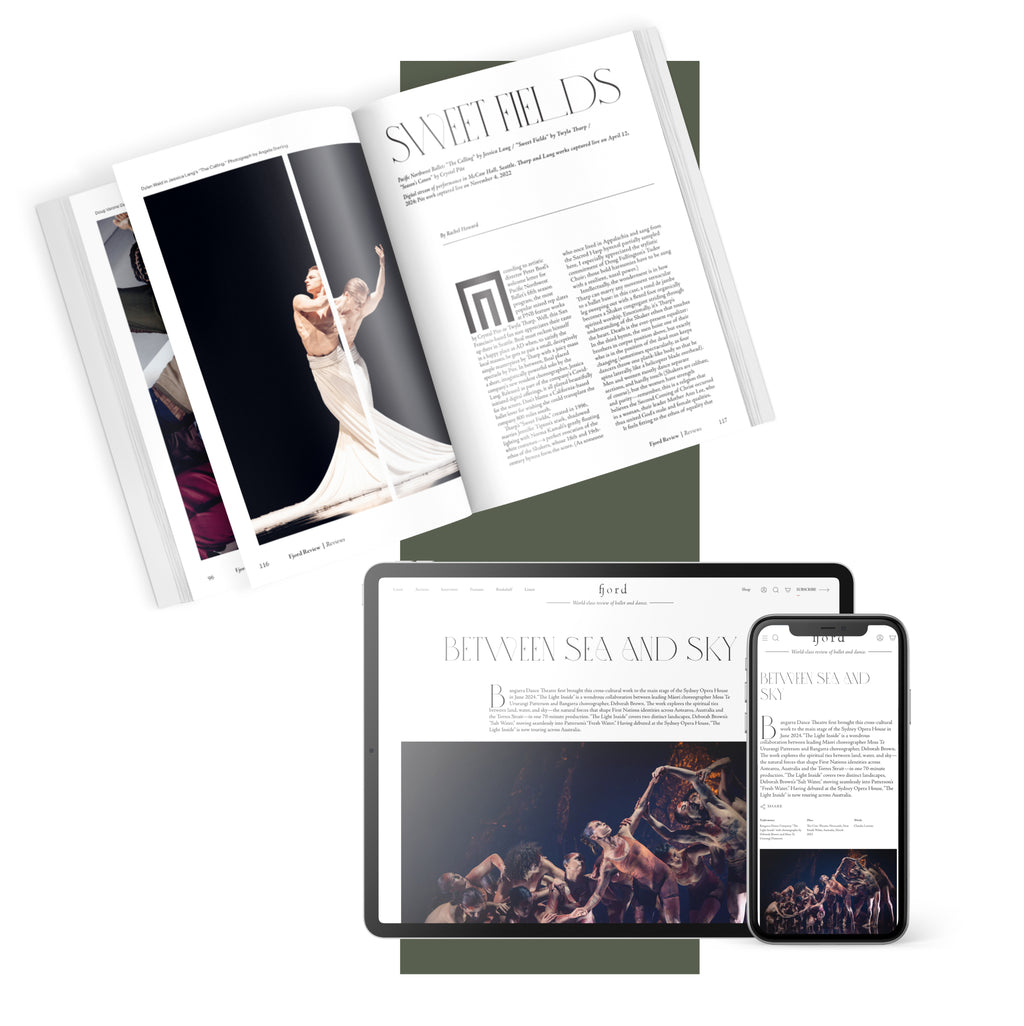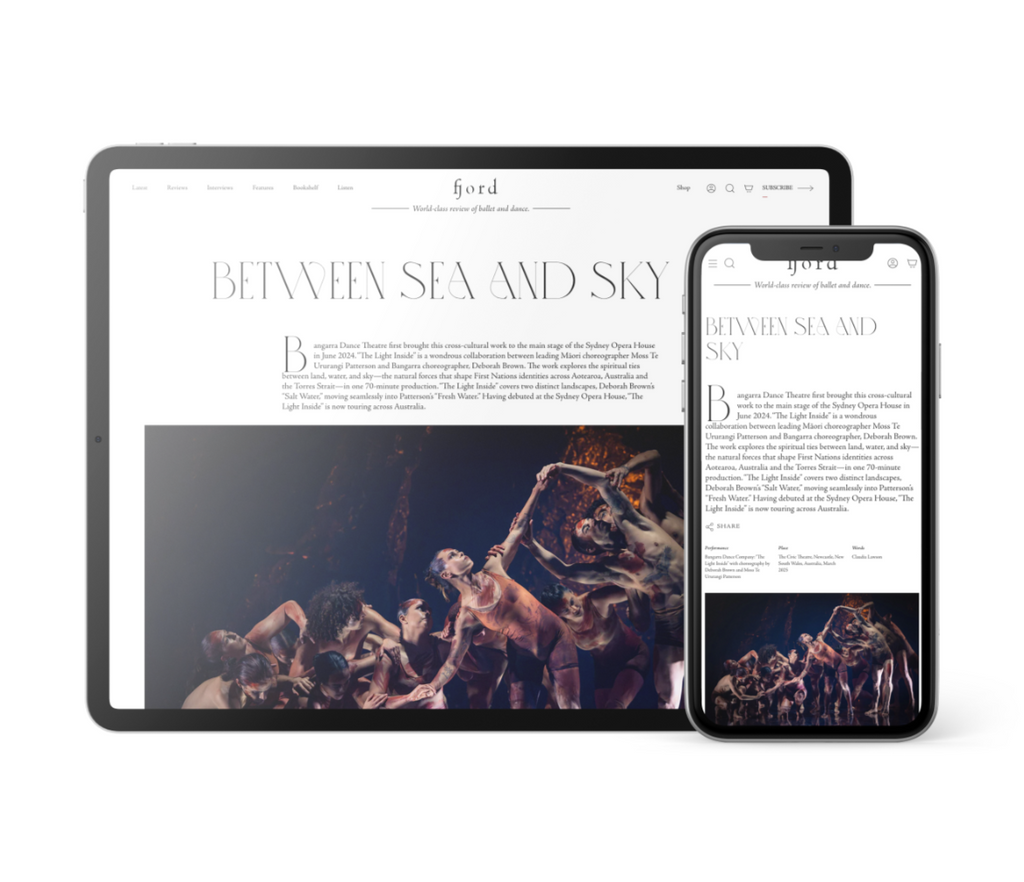The New Firebirds
One thing that I love about the Firebird is that she is the hero,” said Catherine Hurlin, a principal dancer with American Ballet Theatre, in a Zoom interview on a snowy February morning.
Continue Reading
World-class review of ballet and dance.
How often have you sat in a dance piece that felt too long? Lewis Major’s “Triptych” successfully rises to the challenge of creating an evening of dance, without overstretching an idea into boredom. We are treated to two of Major’s works and a short introductory work from Major’s mentor, Russell Maliphant. This allows the themes of the works to bounce against each other, similar to walking into a gallery and studying the different assembled works.
Performance
Place
Words



“Uncommonly intelligent, substantial coverage.”
Your weekly source for world-class dance reviews, interviews, articles, and more.
Already a paid subscriber? Login
One thing that I love about the Firebird is that she is the hero,” said Catherine Hurlin, a principal dancer with American Ballet Theatre, in a Zoom interview on a snowy February morning.
Continue ReadingBritish choreographer Jaivant Patel has intersectionality at his core. He trained at the Northern School for Contemporary Dance and then went on to learn from Nahid Siddiqui, a global exponent of Kathak.
Continue ReadingIt was perhaps on Instagram some five or six years ago when I first came across the dance films of Benjamin Seroussi.
Continue ReadingBeneath my feet, thousands upon thousands of tiny threads in the soil transmit messages and nutrients, actions and behaviours.
Continue Reading
comments